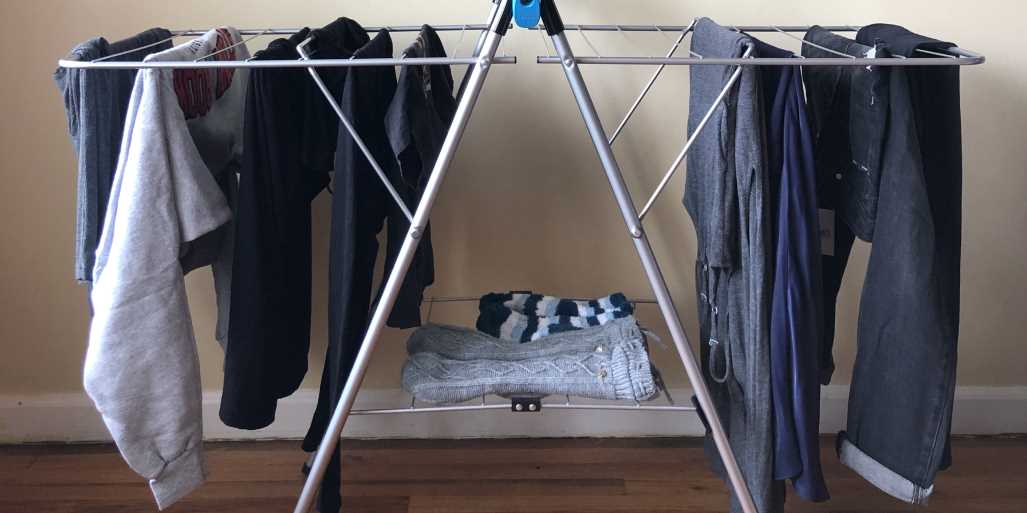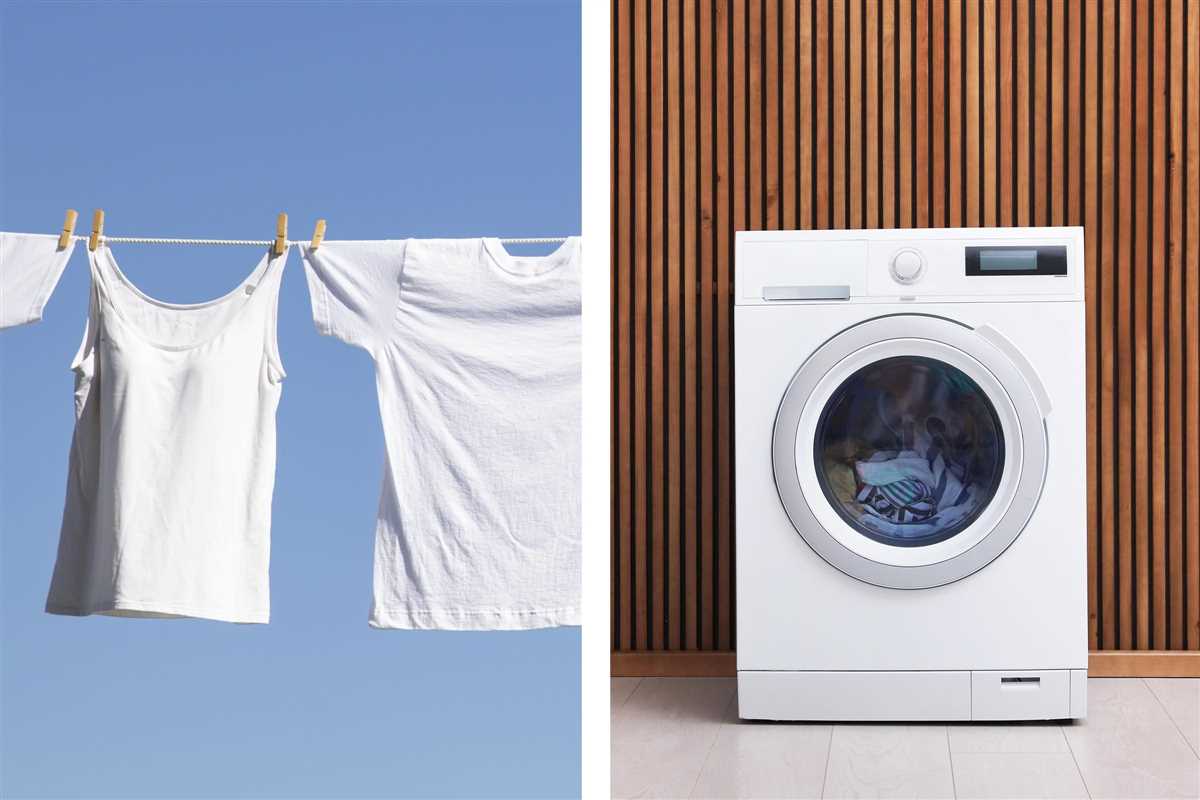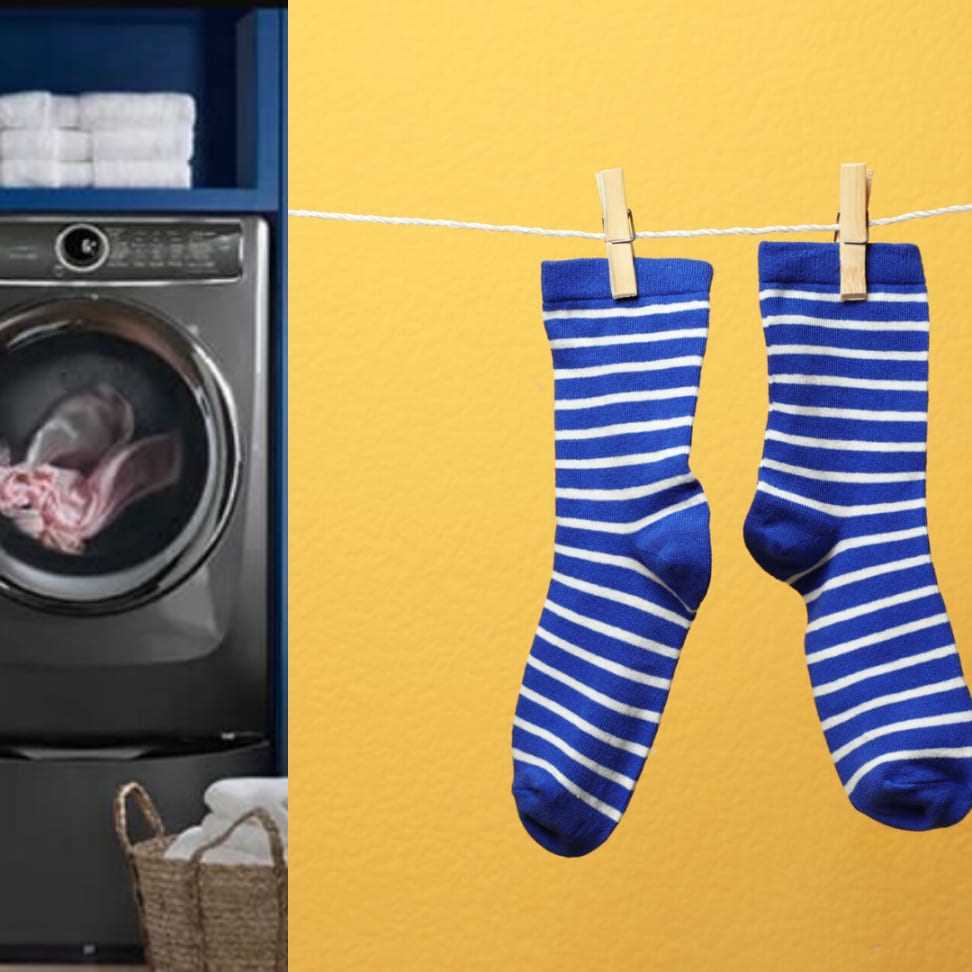
Are you tired of constantly washing your clothes and dealing with the hassle of laundry? Would you like to know an alternative method that is not only convenient but also eco-friendly? In this guide, we will explore the benefits of airing clothes instead of washing them and provide you with practical tips to get started.
Airing clothes is a simple and effective way to freshen up items that may not necessarily be dirty but need a little extra boost. By allowing your clothes to air out, you can remove any odors or wrinkles, making them feel and look as good as new. This method is particularly beneficial for garments made from delicate fabrics such as silk or cashmere, which may not hold up well to frequent washing.
One of the major advantages of airing clothes is that it helps to extend their lifespan. Washing clothes too frequently can cause them to fade, shrink or lose their shape over time. By airing them instead, you can reduce the wear and tear and enjoy your favorite clothes for longer.
“Airing clothes is a simple and effective way to freshen up items that may not necessarily be dirty but need a little extra boost.”
Furthermore, airing your clothes can have a positive impact on the environment. Traditional laundry methods consume a significant amount of water and energy, contributing to pollution and climate change. By opting to air your clothes instead of washing them, you are taking a small but meaningful step towards reducing your carbon footprint.
Airing Clothes Instead of Washing Them – A Complete Guide
Introduction

Welcome to our complete guide on airing clothes instead of washing them! In this article, we will explore the benefits of airing clothes, tips for effective airing, and guidelines for when it is suitable to air clothes instead of washing them. Whether you are looking to save time, energy, or money, airing clothes can be a great alternative to washing.
Why Air Clothes?
Airing clothes is a practical solution for extending the wearability of your garments without having to wash them. Washing clothes too frequently can cause them to fade, shrink, or lose their shape. By airing clothes, you can remove odors and freshen them up instead of subjecting them to the harsh detergents and agitation of a washing machine.
Tips for Effective Airing
- Choose a well-ventilated area: Airing clothes in a properly ventilated space is essential to ensure that the odors are effectively removed. Pick a spot close to an open window or outside if weather permits.
- Hang clothes properly: Use hangers or a clothesline to hang your clothes. Be sure to spread them out to allow proper air circulation and prevent them from touching each other.
- Select the right time: Airing clothes on a sunny day can help speed up the process as the sun’s UV rays can have a sanitizing effect. However, avoid exposing delicate fabrics to direct sunlight for a prolonged period, as this may cause fading or damage.
- Consider using natural odor absorbers: If your clothes have stubborn odors, you can place natural odor absorbers like activated charcoal, baking soda, or lavender sachets nearby, to help eliminate unwanted smells.
When to Air Clothes Instead of Washing
Airing clothes is not suitable for all situations, but there are specific occasions when it can be a viable option. Here are some instances when you can opt for airing over washing:
- Clothes worn for a short period: If you have worn a garment for a short period and it is not visibly dirty or smelly, you can simply air it out to remove any mild odors.
- Dry-clean only clothes: Some garments may have a dry-clean only label due to their delicate fabric or intricate embellishments. In such cases, airing the clothes can be a safe alternative to avoid potential damage caused by washing.
- Clothes worn for light activities: If you have worn clothes for light activities like running errands or attending meetings, and they are not visibly soiled, airing them can help freshen them up.
Conclusion
Airing clothes instead of washing them can be a practical and effective way to extend the life of your garments while reducing the amount of water, energy, and detergent used. By following the tips and guidelines outlined in this guide, you can successfully air your clothes and enjoy the benefits it offers. Remember to assess each situation individually to determine whether airing is suitable for your specific clothing items.
Benefits of Airing Clothes
- Air drying clothes helps to remove odours and refresh them without the need for washing.
- It can help to extend the lifespan of clothing by reducing the wear and tear that occurs in the washing machine.
- Airing clothes can help to preserve the integrity of delicate fabrics that may become damaged in the washing machine.
- Air drying clothes saves energy and reduces carbon emissions compared to using a dryer.
- It can help to save money on energy bills by eliminating the need to use a dryer.
- By avoiding the use of harsh detergents, airing clothes is a more environmentally friendly option.
- Airing clothes is a convenient and quick way to refresh them between washes.
- It can help to prevent the fading of colors in clothing that can occur in the washing machine.
How to Properly Air Clothes
Airing clothes can be a great way to refresh and clean them without using water or detergent. Follow these steps to properly air your clothes:
1. Decide when to air
- Choose a sunny or windy day to air your clothes. The sunlight and fresh air will help remove odors and dampness.
- Avoid airing clothes on rainy or humid days as it may take longer for them to dry.
2. Choose the right location
- Find a well-ventilated area to hang your clothes. This can be an outdoor clothesline, balcony, or an indoor drying rack near a window.
- Make sure the location is clean and free from dust and dirt that can cling to your clothes.
3. Prepare the clothes
- Before airing, shake each item of clothing to remove any loose dirt or debris.
- Give the clothes a quick inspection and remove any stains or spots that require further cleaning.
- Untangle any tangled garments to ensure proper airflow during the airing process.
4. Hang the clothes
- Hang each piece of clothing separately to allow for maximum air circulation.
- Avoid overcrowding the clothesline or drying rack, as this can prevent proper drying.
- Use hangers for shirts, dresses, and jackets to prevent creasing.
- For delicate items, use a mesh laundry bag or place them flat on a clean surface.
5. Rotate and reposition
- Periodically rotate or reposition the clothes to ensure even drying.
- If using an outdoor clothesline, make sure to turn the clothes inside out to prevent fading from direct sunlight.
6. Allow sufficient drying time
- The drying time will vary depending on the type of fabric, humidity, and weather conditions.
- Check the clothes regularly to see if they are completely dry. Avoid bringing them indoors if they still feel damp.
7. Store properly
- Once the clothes are dry, remove them from the airing location and fold or hang them in a clean wardrobe.
- Store the clothes in a cool, dry place to prevent any moisture or odors from affecting them.
By following these steps, you can effectively air your clothes and keep them fresh and clean without needing to wash them every time.
Materials and Fabrics Suitable for Airing

Airing clothes can be a great way to refresh and reduce the need for frequent washing. However, not all materials and fabrics are suitable for this method. Here are some materials that are recommended for airing:
- Cotton: Cotton is a breathable fabric that allows air to pass through easily. It is ideal for airing as it dries quickly and does not trap odors.
- Linen: Linen is another natural fabric that is perfect for airing. It has excellent moisture-wicking properties and can quickly release any trapped odors.
- Wool: While wool may not be suitable for airing in hot and humid weather, it can benefit from a good airing in cooler conditions. It helps to remove any moisture and allows the fibers to regain their shape.
- Silk: Silk is a delicate fabric that can be aired but requires special care. It is best to air silk garments in a shaded area to prevent any damage from UV rays.
In addition to these materials, there are some fabrics that should be avoided for airing:
- Polyester: Polyester fabrics are synthetic and do not allow air to pass through easily. They tend to trap odors and may not benefit from airing.
- Acrylic: Similar to polyester, acrylic fabrics are not breathable and may not benefit from airing. They can also be prone to static electricity.
- Nylon: Nylon fabrics can trap odors and may not dry quickly when aired. It is best to follow the care instructions provided for nylon garments.
It is important to check the care instructions for each garment before airing. Some materials may have specific guidelines or restrictions that should be followed to maintain the quality and longevity of the clothing.
Airing Clothes in Different Seasons

When it comes to airing clothes, it’s important to consider the different seasons and weather conditions. Here are some tips for airing clothes in various seasons:
Spring
- Take advantage of the mild temperatures and gentle breeze during springtime to air your clothes outside.
- Hang your clothes on a clothesline or clothing rack in a well-ventilated area, preferably in the shade to prevent direct sunlight.
- Ensure your clothes are fully dry before taking them inside to avoid any musty smell or potential mold growth.
Summer
- During hot summer months, it’s best to air your clothes early in the morning or late in the evening when the temperatures are slightly cooler.
- Avoid prolonged exposure to direct sunlight as it can fade or damage the fabrics.
- Consider using a clothesline with a cover or hanging your clothes in a shaded area to protect them from the sun.
Fall
- In autumn, take advantage of the crisp and cool air to air your clothes outdoors.
- Make sure to check the weather forecast, as rain showers and humidity can interfere with the drying process.
- If it’s too humid or rainy outside, you can hang your clothes on a drying rack indoors near an open window or a well-ventilated room.
Winter
- In winter, it can be challenging to air clothes outside due to cold temperatures and limited sunlight.
- Consider using a heated drying rack or indoor clothesline to dry your clothes indoors.
- Ensure proper ventilation in the room where you are airing your clothes to prevent excess moisture and mildew.
Remember to always check the care labels of your clothes before airing them and follow any specific instructions provided by the manufacturer. Airing clothes can help prolong their lifespan and reduce the need for frequent washing, but it’s essential to do it properly according to the season and weather conditions.
Tips and Tricks for Airing Clothes
Airing clothes instead of washing them can help save both water and energy. Here are some tips and tricks to effectively air your clothes and keep them fresh and clean:
1. Choose the Right Spot

Find a well-ventilated area in your home to air your clothes. It could be a balcony, a clothesline in the garden, or even a room with open windows. Ensure that the area is clean and free from dust and dirt.
2. Sort Your Clothes
Before airing your clothes, sort them according to their fabric type and color. This will prevent any color bleeding or damage caused by different fabric textures rubbing against each other.
3. Shake Out the Clothes

Before hanging your clothes to air, give them a good shake to remove any dust or debris that may have accumulated. This will also help to reduce wrinkles.
4. Use Hangers or Clothespins
Hang your clothes on hangers or use clothespins to secure them to a clothesline. This will help them maintain their shape and prevent them from sagging or creasing.
5. Allow for Proper Airflow
Make sure there is enough space between each item of clothing to allow for proper airflow. This will help the clothes dry faster and prevent any musty odors from forming.
6. Rotate and Flip the Clothes
To ensure all sides of your clothing are properly aired, rotate and flip them every few hours. This will help to evenly distribute the airflow and prevent any damp spots.
7. Avoid Direct Sunlight
While sunlight can help to naturally freshen up clothes, too much exposure can cause fading or damage to certain fabrics. If possible, choose a shaded area for airing your clothes.
8. Use a Clothes Rack or Drying Rack

If you don’t have access to an outdoor space, invest in a clothes rack or drying rack. These are portable and can be placed in any room with good ventilation.
9. Check the Weather
Before airing your clothes outdoors, make sure to check the weather forecast. Avoid airing clothes on rainy or humid days, as they may not dry properly and could develop an unpleasant smell.
10. Store Properly
Once your clothes are fully aired, fold or hang them properly for storage. This will help to maintain their freshness and prevent wrinkles from forming.
By following these tips and tricks, you can effectively air your clothes and keep them clean and fresh without using excessive water or energy.
FAQ
Can I really air my clothes instead of washing them?
Yes, you can! Airing your clothes is a great way to refresh them without having to go through the washing process. It helps remove odors and freshen up your garments.
How long should I air my clothes for?
The duration for airing your clothes can vary depending on the type of fabric and the intensity of odors. For light odors, a few hours of airing should be sufficient. However, for stronger odors, it’s recommended to leave the clothes out overnight or for a whole day.
What is the best way to air clothes?
The best way to air clothes is to hang them outside in a well-ventilated area. Choose a spot with good airflow and make sure the clothes are spread out for maximum exposure. If you don’t have access to outdoor space, you can hang them near an open window or use a clothes rack indoors.
Which types of clothes can benefit from airing instead of washing?
Airing clothes can be beneficial for various types of garments, such as sweaters, jackets, jeans, and other items that are not heavily soiled or stained. Delicate fabrics like silk and lace may also benefit from airing instead of frequent washing, as it helps maintain their quality.
Are there any precautions I should take when airing my clothes?
When airing your clothes, make sure they are in a clean and dry condition. Avoid hanging them in direct sunlight, as prolonged exposure to sunlight can fade colors. Additionally, it’s important to check the weather forecast, as rain or high humidity can prevent effective airing and may even cause mildew or mold growth on the garments.













